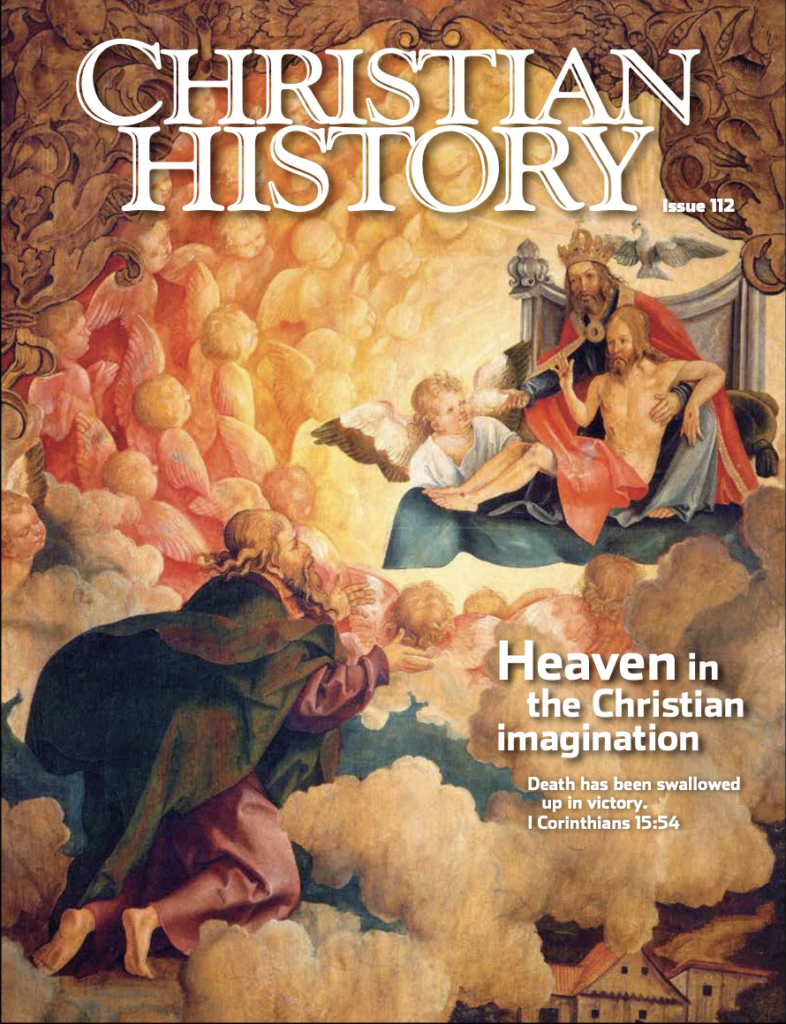“The most sublime expression of heaven in the medieval church was not argument but poetry: the Paradiso of Dante Alighieri (1265–1321; see CH issue 70, Dante’s Guide to Heaven and Hell). Dante’s Inferno is today more widely known: it seems to be easier for readers to grasp evil and its consequences than to understand the shining pure love that God pours out into his cosmos. While a summary of the Paradiso is wholly inadequate to the glory of the poetry itself, in it Dante ascends upward from the round earth through the lunar and planetary spheres until he reaches the primum mobile, the outermost sphere, which moves all the spheres below it.
“As he ascends, each sphere is more suffused with light, beauty, love, and majesty than the one beneath. Throughout this journey he can look down to the earth far below at the apparent center of the universe. But at the primum mobile, he turns so that his gaze shifts from the geographical center of the universe to the true center of the universe, which is God in his heaven.
“Journeying closer to this perfect light of love, Dante in his burning desire and enlightened intellect sees God himself—to the extent that human limitation permits. The experience is so perfectly awesome (in the word’s original sense of creating awe) that when he returns to earth, he can no longer remember or express it fully, but says ‘I do remember that my vision bore the intensity of the divine ray until it joined Infinite Being and Good itself. Oh, the overflowing grace through which I could presume to fix my gaze on the Eternal Light so fully that I used up all my sight.’
[. . .]
“After Dante, such heights of reflection on heaven were few and far between. The leaders of the Protestant Reformation, Martin Luther and John Calvin, followed established tradition about heaven with only one essential difference, though an important one. They abolished the idea of purgatory on the grounds that it is not biblical and that God knows who is in heaven so that there is no need to pray for the spiritual welfare of the deceased (‘“Another stop on the glory train?’).
“In the end, while human ideas of heaven are limited, Christian tradition gives us some idea of what we might expect. Early and medieval Christians teach us that heaven is the state of being in which all who love God are united in community with him and with one another in the brightness of glory; the fabric of love uniting all in a pattern whose beauty passes understanding.” —Jeffrey Burton Russell, “God’s love that moves the sun and other stars,” Christian History 112 Heaven in the Christian Imagination, Christian History Institute, November 17, 2014 (retrieved on March 28, 2024)





